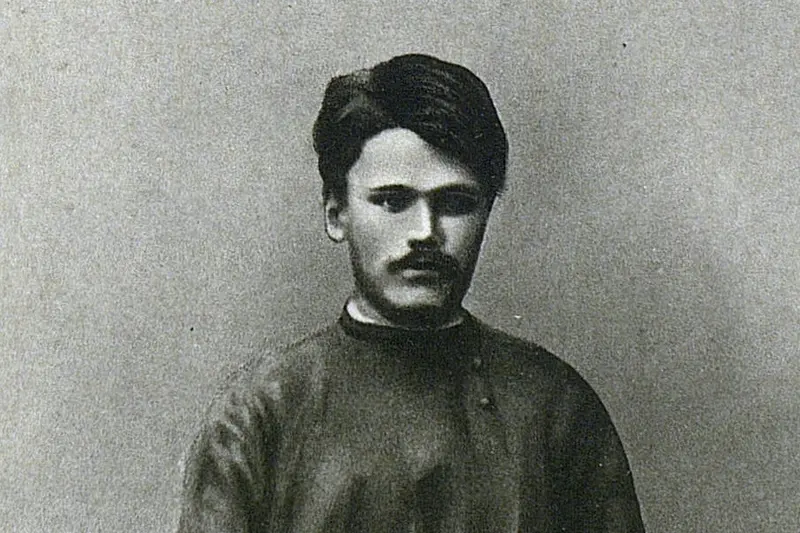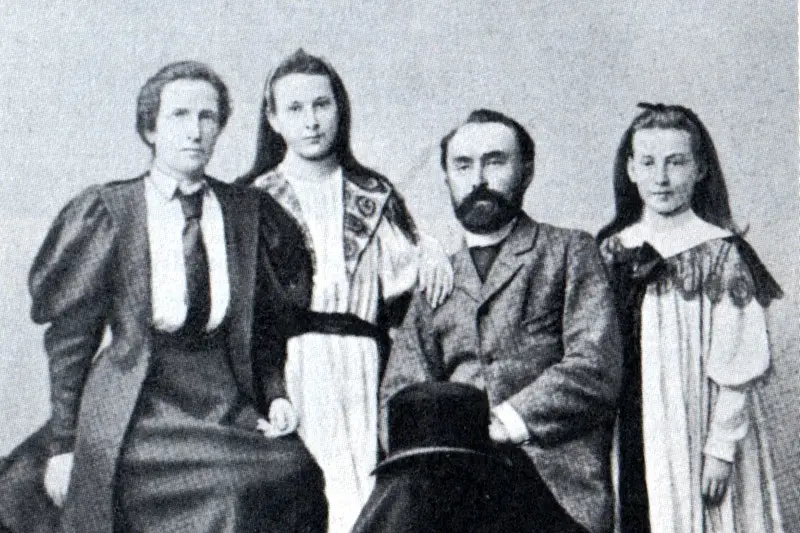Biography
George Plekhanov entered the story as one of the first popularizers of Marxism in Russia. He made a valuable contribution to the development of the philosophy of this direction and left the memory of himself in books, quotes and black and white photos.Childhood and youth
Georgy Plekhanov appeared on November 29 (December 11) of 1856 in the family of retired military Valentine Petrovich and his second wife Mary, who had to be the grandchildren of Vissarion Belinsky. Early years of celebrity biography passed in the village of Gudalovka Tambov province.

As a child, Georgy dreamed of going at the footsteps of the Father and become a military. He graduated from Voronezh gymnasium and entered the Junker School in St. Petersburg, but soon disappointed in the chosen path. After that, the young man became a Student of the Mining Institute, but was deducted for non-payment. During this period, Plekhanov was fascinated by the ideas of populism, he was engaged in revolutionary propaganda and repeatedly subjected to arrest.
In 1876, the ideologist made a speech in defense of Nikolai Chernyshevsky and because of fear of persecution was forced to hide. In his youth, he was a member of "walking to the people", consisted of the organization "Earth and Will", which released the same magazine.
But soon there was a split between the participants of the group. Some of them advocated the support of the terrorist methods of the fight against the authorities up to the rearness, while Plekhanov and his supporters were against such measures. As a result, "Earth and Volya" broke into the "folk will" and "black convey", to which Georgy joined.
Activity
In 1880, the publicist was threatened with prison imprisonment, which was forced to flee into Switzerland. In subsequent years, Georgy Valentinovich lived in Europe. He continued his education, was a listener of lectures in Sorbonne and Geneva University, supported communication with European politicians.
Soon Plekhanov became interested in the ideology of Marxism and organized the "Liberation" group, which was engaged in the spread of the ideas of Karl Marx and Friedrich Engels in Russia. He established a connection with supporters in St. Petersburg, where his books were published under various pseudonyms.
The main works of the publicist include "to the question of the role of personality in history", "Anarhism and Socialism" and "The main issues of Marxism". In his publications, Georgy Valentinovich promote the values of Social Democracy and criticized population.
The author contributed to the economy, insisted that the cost is determined by the work spent on production. He studied the role of workers in the socio-economic life of Russia and called them the driving force of the state's development.

For some time, Plekhanov was the editor of the Lenin newspaper "Spark". In 1903, he became a member of the II Congress of the RSDLP, after which he spoke out against Vladimir Lenin and joined the Mensheviks. In the future, Georgy Valentinovich criticized the ideas of the leader of the Bolsheviks and misfortunely spoke about his "April theses".
While in emigration, Marxism theorist could not be a direct member of the events occurring in Russia, but he did not remain aside and called on the people to fight against Germany during the First World War.
In recent years, publicist was the leader of the Social Democratic Organization "Unity" and published the newspaper of the same name. Visit the Motherland of celebrities allowed only 37 years after the expulsion, in 1917, but he was forced to leave again due to health problems. During his stay in Russia, he conducted disputes with ideological opponents and published articles on politically significant events in the state, including the October Revolution, to which he did negatively.
Personal life
The first wife of the celebrity was Natalia Smirnov, who gave him two children - the daughter of the hope and son of Nicholas, who deceased in childhood. But the marriage was not happy, the spouse was tested to Georgy Valentinovich only warm friendly feelings and gone according to the former beloved, which was in the link.As a result, the woman left the publicist, and he married the second time. Plast of Plekhanov became Rosalia Bograd, with which he gained happiness in his personal life. The wife gave his wife to his daughters faith, Lydia, Eugene and Maria, but the eldest of them died in infancy.
Death
Marxist suffered from tuberculosis, which he found back at another 31 years. Because of this, with age, health more and more failed the celebrity, and the last year of life he was constantly on treatment. But the efforts of the doctors did not give results, and on May 30, 1918, Plekhanov died, the cause of death was the embolism of the heart, developed against the background of the exacerbation of tuberculosis.
The philosopher was buried on the Volkovsky cemetery, not far from the grave of Vissarion Belinsky.
Memory
- Street named after Georgy Plekhanov is in Belgorod, Penza, Kharkov, Lipetsk, Nikolaev, Orenburg, Minsk
- Plekhanov Square in Tomsk
- House-Museum G. V. Plekhanov in Lipetsk
- Plekhanov House in St. Petersburg, where the division of the Russian National Library is located
- Monuments Georgia Plekhanov in St. Petersburg, Lipetsk, Plekhanov (Lipetsk region)
- In honor of George Plekhanov, Russian Economics and St. Petersburg State Mining Institute are named
- 1925 - "Stepan Halturin" (Actor Oleg Frelich)
- 1961 - "At the beginning of the century" (actor Nikolai Annenkov)
- 1965 - "Emergency Commission" (Actor Sergey Karnavich-Valua)
- 1967 - Sophia Perovskaya (actor Konstantin Khudyakov)
- 1974 - "Eagle Fall" (Actor Paul Eddington)
- 1981 - "December 20" (actor Ernst Romanov)
- 1993 - "Split" (actor Regumantas Adomaytis)
- 2017 - "Trotsky" (Actor Dmitry Vorobyov)
Bibliography
- 1883 - "Socialism and political struggle"
- 1885 - "Our Disagreements"
- 1894 - "On the issue of the development of a monistic look at the story"
- 1895 - "Augusten Thierry and Materialistic Understanding of History"
- 1897 - "On the materialistic understanding of history"
- 1898 - "To the question of the role of personality in history"
- 1905 - "On the two fronts. Collection of political articles "
- 1908 - "The main issues of Marxism"
- 1917 - "War and Peace"
- 1923 - "Essays on the history of the Russian public thought of the XIX century"
